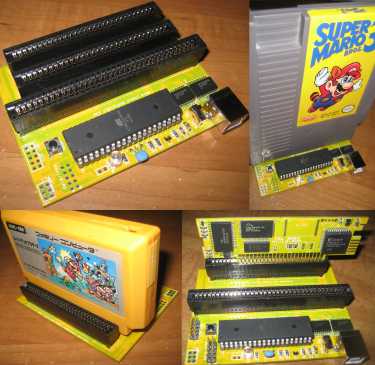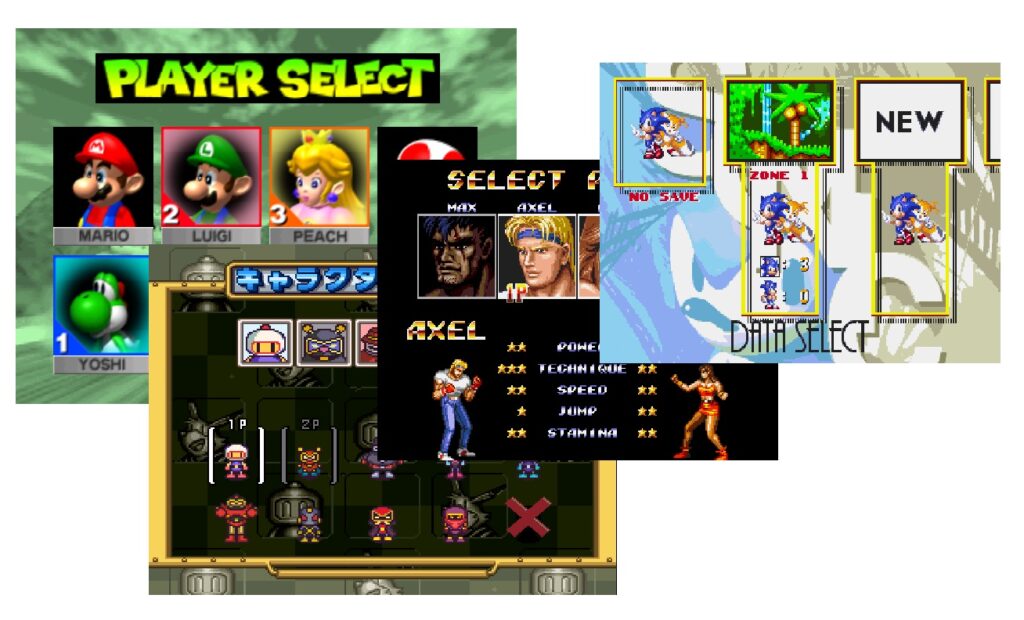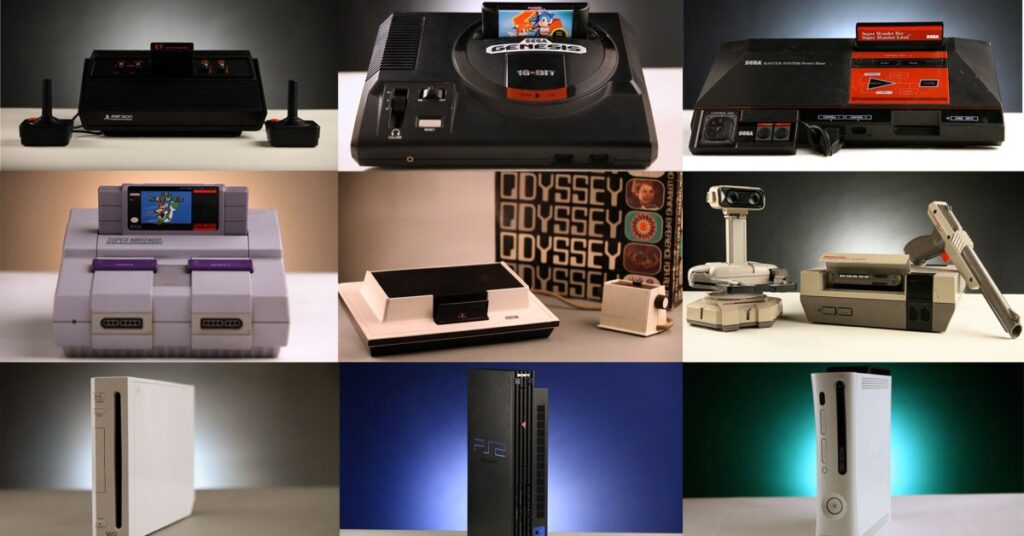(NOTE: This article is one half of a two-part series on the arguments for and against emulation in gaming. You can find part two here.)
Emulation refers to the process of recreating the functions and inner workings of older hardware in software running on another (usually vastly more powerful) system. In particular, game emulation most often involves running classic games from older consoles and systems on modern computers, mobile devices, or gaming consoles. While some may argue that emulation undermines the commercial viability of games, it offers numerous benefits that make it a valuable tool for gamers, historians, and developers alike.
Preservation of Classic Games

One of the primary benefits of game emulation is the preservation of classic games. Over time, hardware becomes outdated, and either through natural wear and tear or through people simply scrapping their older systems, the hardware needed to run these older games becomes harder to find. By emulating these games on modern devices, gamers can keep these classics alive and accessible for future generations.
This is especially important for games that were only released on obscure consoles or systems that are no longer in production. In fact, there are many documented instances of developers having lost their own backups of source code and release builds of games, resorting to using dumped ROMs distributed online by the emulation community.
Without emulation, many of these games may be lost to history.
Cost Savings

Another significant benefit of game emulation is cost savings. Many classic games are no longer available for purchase through official channels, and acquiring them through second-hand markets can be expensive. The vastly inflated prices of these games, caused by the uptake in interest in retro games as well as the speculative market that now surrounds them, mean that the most unremarkable of titles can command an unreasonable price.
By emulating games, gamers can play these classics without the need for expensive hardware or software. This allows gamers to experience classic games without breaking the bank, making gaming history much more accessible to a broader audience.
While it may sound like I’m using this point to justify piracy, I would like to clarify that I believe that if a publisher has made a title you want to play available for purchase at a reasonable price, then you should definitely take that option rather than resorting to less legal means.
Customizable Controls and Settings

Given that it’s usually accomplished by software, emulation also allows gamers to customise controls and settings to suit their preferences in ways that are simply not available on the original hardware. Most emulators offer the ability to remap controls or use controllers that weren’t originally compatible with the game or system. This can enhance the gaming experience, as players can choose the control scheme that works best for them.
Along the same vein, modern emulators often offer graphical and audio enhancements that bring the quality or clarity of those elements more in line with modern hardware, increasing accessibility for those who may be put off by the low-res visuals from the time.
Increased Compatibility

Emulation allows compatibility with games on devices far removed from their original platform. As technology advances, older games often get left behind as they become incompatible with newer systems or hardware.
By emulating these games, gamers can overcome compatibility issues and play classic games on modern devices. This is especially important for gamers who may not have access to the original hardware required to play certain games.
Another aspect of this is the fact that many of us have devices in our pockets every day that are far more powerful than the hardware of previous generations. As a result, many of the earliest gaming systems are easily emulated on portable devices, allowing gamers to take classic games with them anywhere they go.
Access to Games from Around the World

One of the most obvious benefits of game emulation, and also one of the earliest reasons it occurred, is the access to games that were exclusive to other regions. In most cases, even if you could import a copy of the game, you would find it wouldn’t even work on your hardware due to built-in region locks. Emulation can help to break down these barriers, giving gamers access to a wider range of games from different regions, with many emulators even built with the ability to patch games with fan-made translations.
Enhanced Multiplayer Capabilities

Emulation can bring many dying forms of multiplayer back to life for new players to experience. Many classic games were designed to be played with others, but the hardware required to do so may no longer be readily available. A prominent example of this would be titles on the Game Boy (Pokémon with the link cable) or PS1 (Multitap games).
By emulating these games, gamers can play classic multiplayer titles with others, with the connectivity features being emulated online. This not only adds a new dimension to the gaming experience but also helps to bring gamers together from all over the world.
Accessibility for Gamers with Disabilities

Further expanding on the previous point about customizable controls, game emulation can also make gaming more accessible for individuals with disabilities. Most, if not all, emulators offer features such as key remapping and controller customisation that can make gaming easier for those with mobility or dexterity issues. This can allow players with limited mobility to have controllers fully adapted to their needs and usable across many platforms.
In many cases, this would be the only method for these gamers to experience these titles, as most older hardware would not support their custom-built controls.
Experimental Gameplay

Emulation is used more and more to experiment with classic gameplay. Modded games are nothing new, but up until the advent of capable emulators, the practice was mostly isolated to the PC. Many emulators now offer the ability to patch games on the fly, making testing these hacks much more in line with a dev kit and making the process easier.
With these capabilities, a growing community of modders is busy adding new features and content to existing games. This allows gamers to explore games in new ways, adding a level of creativity and experimentation to the gaming experience. These “romhacks” often become famous in their own right in the community, with thousands of downloads each.
There have also been some successful efforts over the years to develop entirely new games for these older machines. One of the most famous examples of this is Pier Solar and the Great Architects: a JRPG that was released for both the Mega Drive (Genesis) and the Dreamcast in 2010. This was a full 9 years after the Dreamcast was discontinued. The ability to still develop games for these old consoles would be lost without emulation, allowing an easy entry point.
Educational Value

Finally, game emulation offers educational value. Studying classic games through emulation is easily the most cost-effective and efficient method you use to gain insight into the history of gaming and the evolution of the medium through the years.
I’ve mentioned it in passing in the above points, but older games can be costly to obtain and difficult to get running. Adding to that, the hardware to play everything that’s been released over the years would take up entire buildings if you wanted it all set up and ready to play. Contrasting that with the ability to have all of those devices emulated on a single computer, it would be hard to deny that it’s a far more convenient method of educating yourself on the history of the medium.
In Conclusion
I believe there are many benefits afforded to gamers by emulation software, and I think it’s important we remember these as we form our opinions on the subject. But on the other hand, we should also remember that the development and improvement of these products does, on some level, facilitate making piracy of these classic games much easier and, as a result, more common. Your morality on that subject aside, it’s still a legal issue that should be considered.
I hope you’ve enjoyed this article on the benefits of game emulation. As mentioned at the beginning, I will be releasing a counter/partner article detailing the drawbacks and negative effects associated with game emulation, and when that is published, I will link it here and at the top of the article so you can find it easily.
You'll see me everywhere here. Mostly I stream and fix things when they break. You might find me writing an odd article or two too. Hope you enjoy the site!






Post Comment